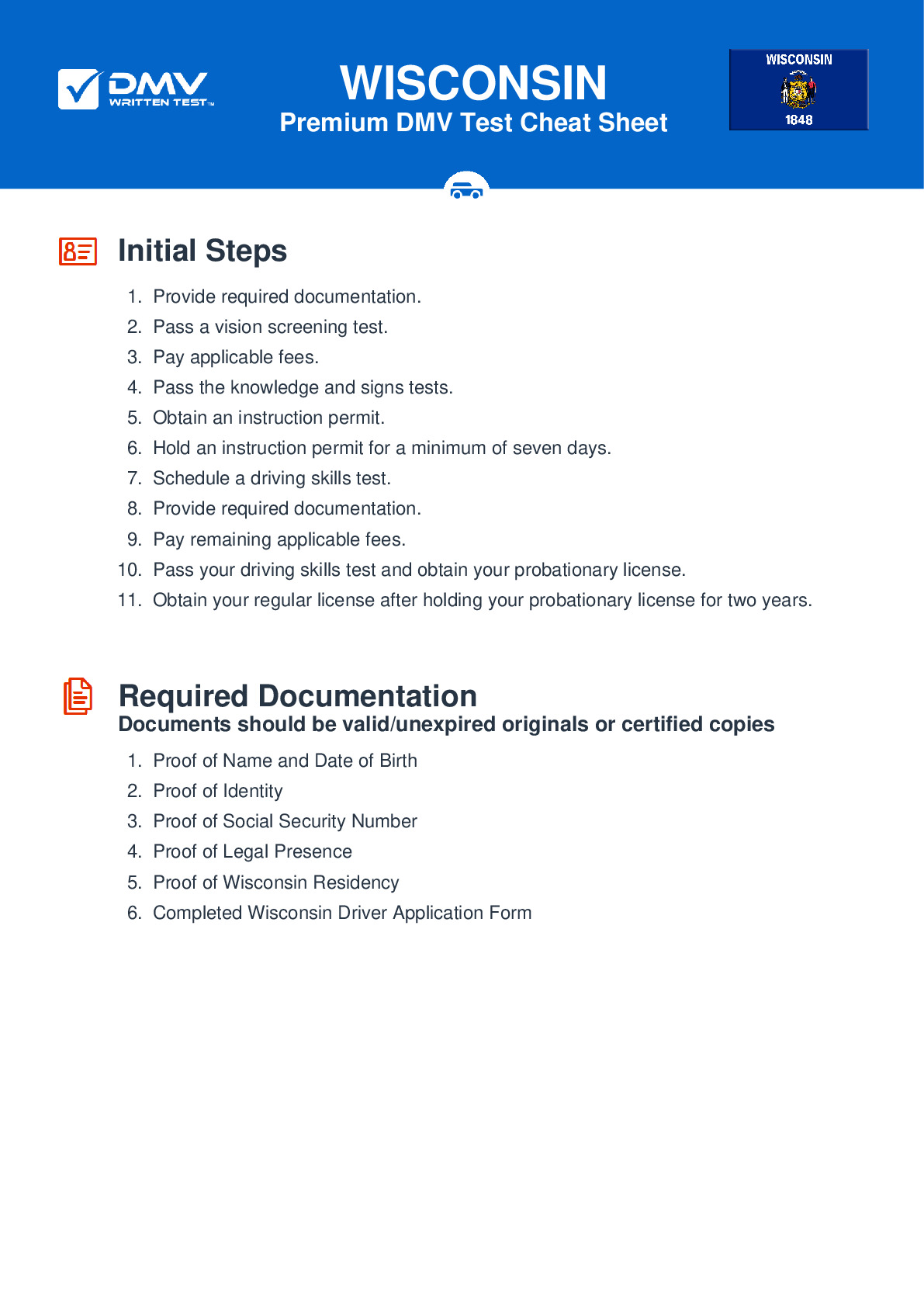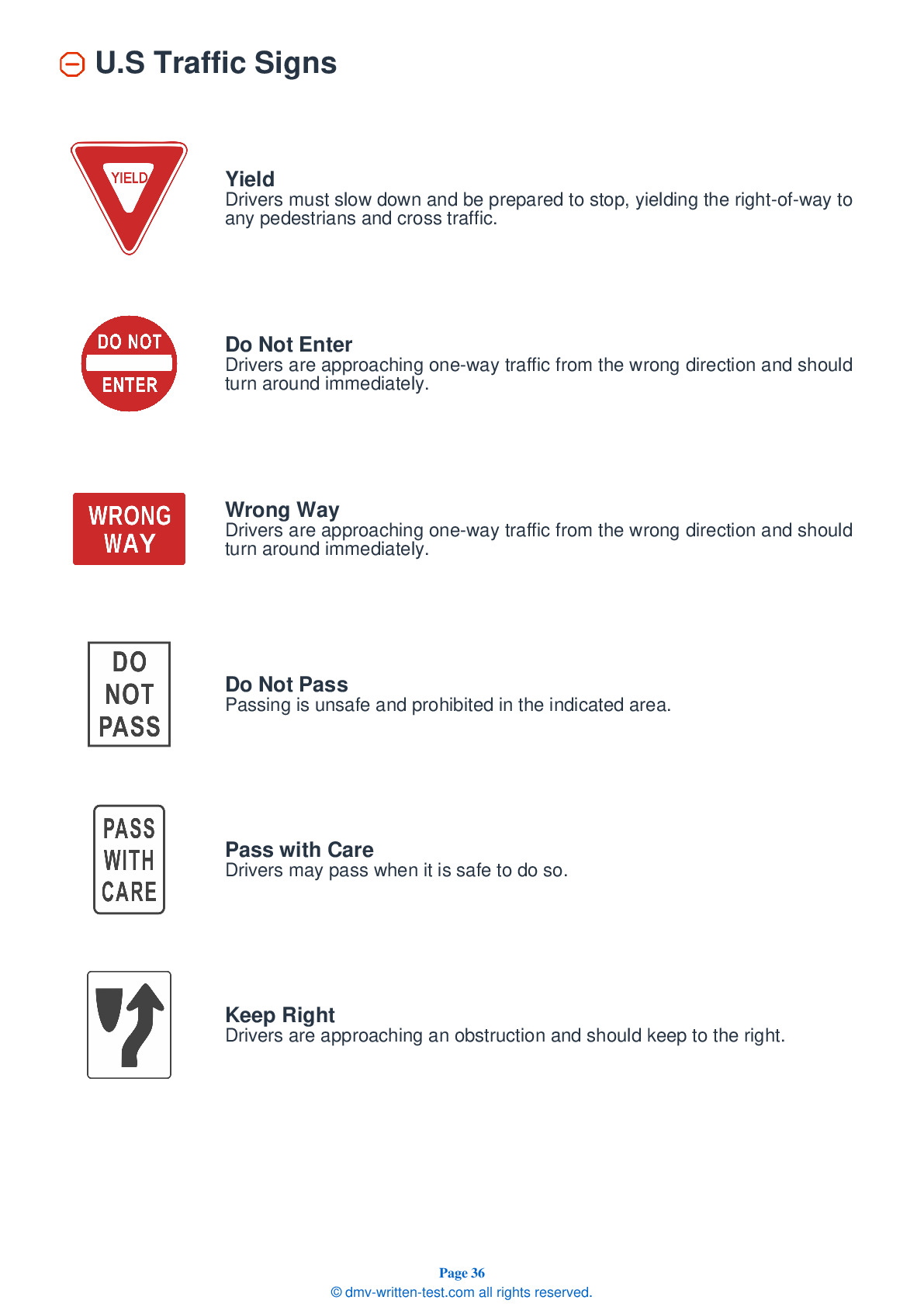2025 Wisconsin Permit Test 14
The following questions are from real DMV written tests. These are some of the actual permit questions you will face in Wisconsin. Each permit practice test question has three answer choices. Select one answer for each question and select "grade this section." You can find this button at the bottom of the drivers license quiz. For a complete list of questions and answers for Wisconsin please visit https://cheat-sheets.dmv-written-test.com/en/wisconsin/car.
Number of Tests
Number of Question
Passing Score
8. If you leave your vehicle unattended, you must:
Explanation
When you leave your vehicle unattended, you must stop the engine, lock the ignition, remove the key from the ignition, and set the parking brake.
9. This sign means:

Explanation
Regulation signs regulate traffic speed and movement, displaying rules which drivers must obey. This regulation sign means that left turns are prohibited.
10. This sign means you are approaching a railroad crossing that does not have a signal. You should:

Explanation
At a railroad crossing marked with this sign, a driver should look both ways, listen for any trains, and be prepared to stop if any trains are nearby. Never try to outdrive an oncoming train.
11. What happens if you drink alcohol while taking prescription or over-the-counter medicine?
Explanation
Consuming alcohol and other drugs together can increase the impairing effects of both. For example, having one drink while you are also using a cold remedy could affect you as much as several drinks would when being consumed separately from any medications.
12. A steady green light at an intersection means that you:
Explanation
A steady green light means you may drive through the intersection if the road is clear. You may also turn right or left on a steady green light unless a sign prohibits the turn. When turning, you must yield to other vehicles and pedestrians within the intersection.
13. In which of the following ways can alcoholic beverages affect you?
Explanation
Alcohol dulls the parts of your brain that control inhibition, judgment, and self-control. As a result, you may feel stimulated, lively, and a bit giddy or foolish after consuming alcohol. Alcohol also impairs your reaction time, coordination, and balance. Your vision and ability to judge distance suffers after alcohol consumption, making it difficult to react to your surroundings.
14. Which of the following does not happen after drinking?
Explanation




